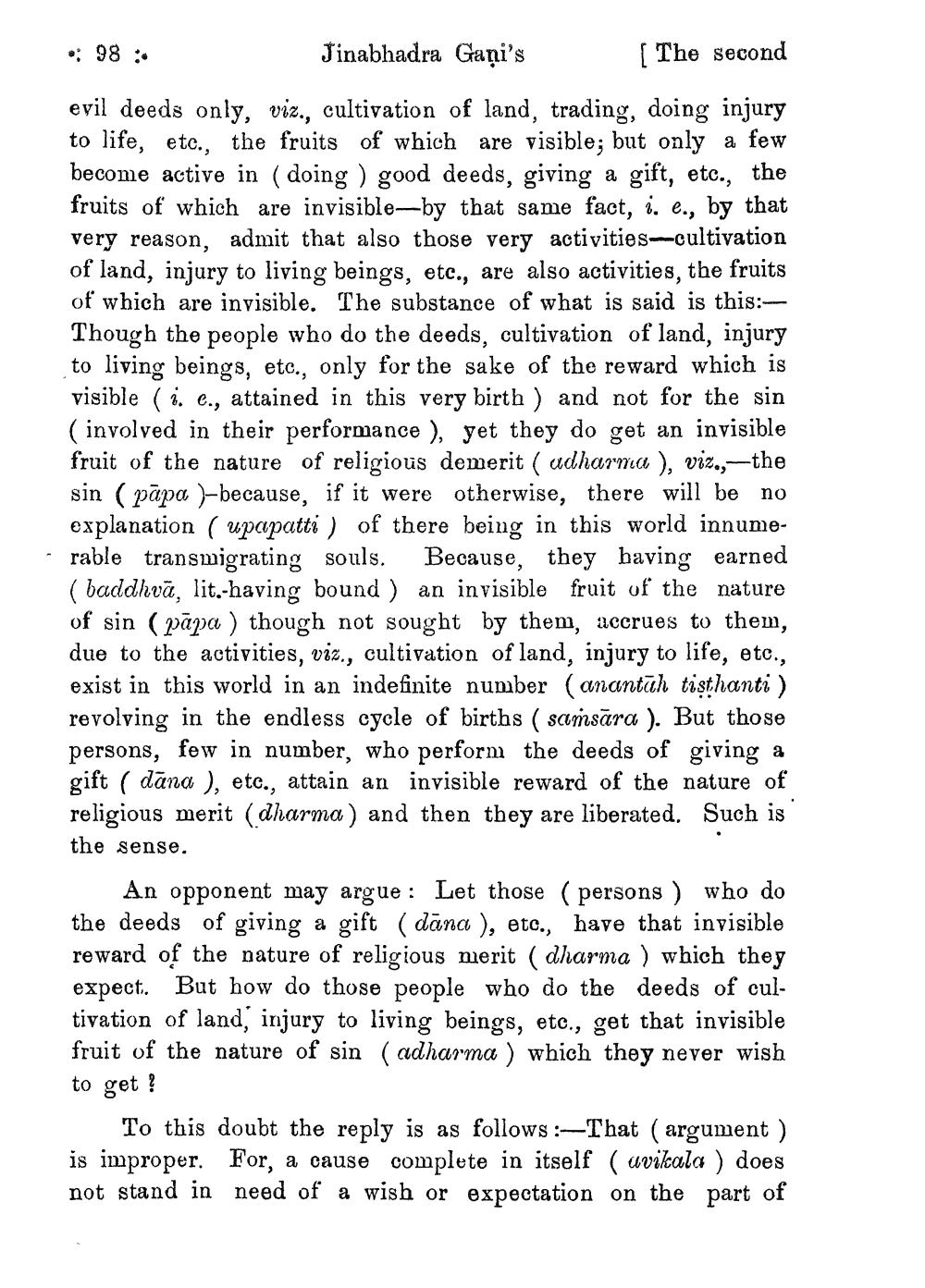________________
.: 98:
Jinabhadra Gaņi's
[The second
evil deeds only, viz., cultivation of land, trading, doing injury to life, etc., the fruits of which are visible; but only a few become active in (doing ) good deeds, giving a gift, etc., the fruits of which are invisible—by that same fact, i. e., by that very reason, admit that also those very activities-cultivation of land, injury to living beings, etc., are also activities, the fruits of which are invisible. The substance of what is said is this:Though the people who do the deeds, cultivation of land, injury to living beings, etc., only for the sake of the reward which is visible (. C., attained in this very birth) and not for the sin ( involved in their performance ), yet they do get an invisible fruit of the nature of religious demerit ( udharma ), viz.,—the sin ( papa )-because, if it were otherwise, there will be no explanation ( upapatti ) of there being in this world innumerable transmigrating souls. Because, they having earned ( baddhvā, lit.-having bound ) an invisible fruit of the nature of sin (pāpa ) though not sought by them, accrues to them, due to the activities, viz., cultivation of land, injury to life, etc., exist in this world in an indefinite number (anantūh tisthanti ) revolving in the endless cycle of births ( samsāra ). But those persons, few in number, who perform the deeds of giving a gift ( dana ), etc., attain an invisible reward of the nature of religious merit (dharma) and then they are liberated. Such is the sense.
An opponent may argue : Let those ( persons ) who do the deeds of giving a gift (dana ), etc., have that invisible reward of the nature of religious merit ( dharma ) which they expect. But how do those people who do the deeds of cultivation of land, injury to living beings, etc., get that invisible fruit of the nature of sin (adharma ) which they never wish to get ?
To this doubt the reply is as follows :--That ( argument ) is improper. For, a cause complete in itself ( uvikala ) does not stand in need of a wish or expectation on the part of




